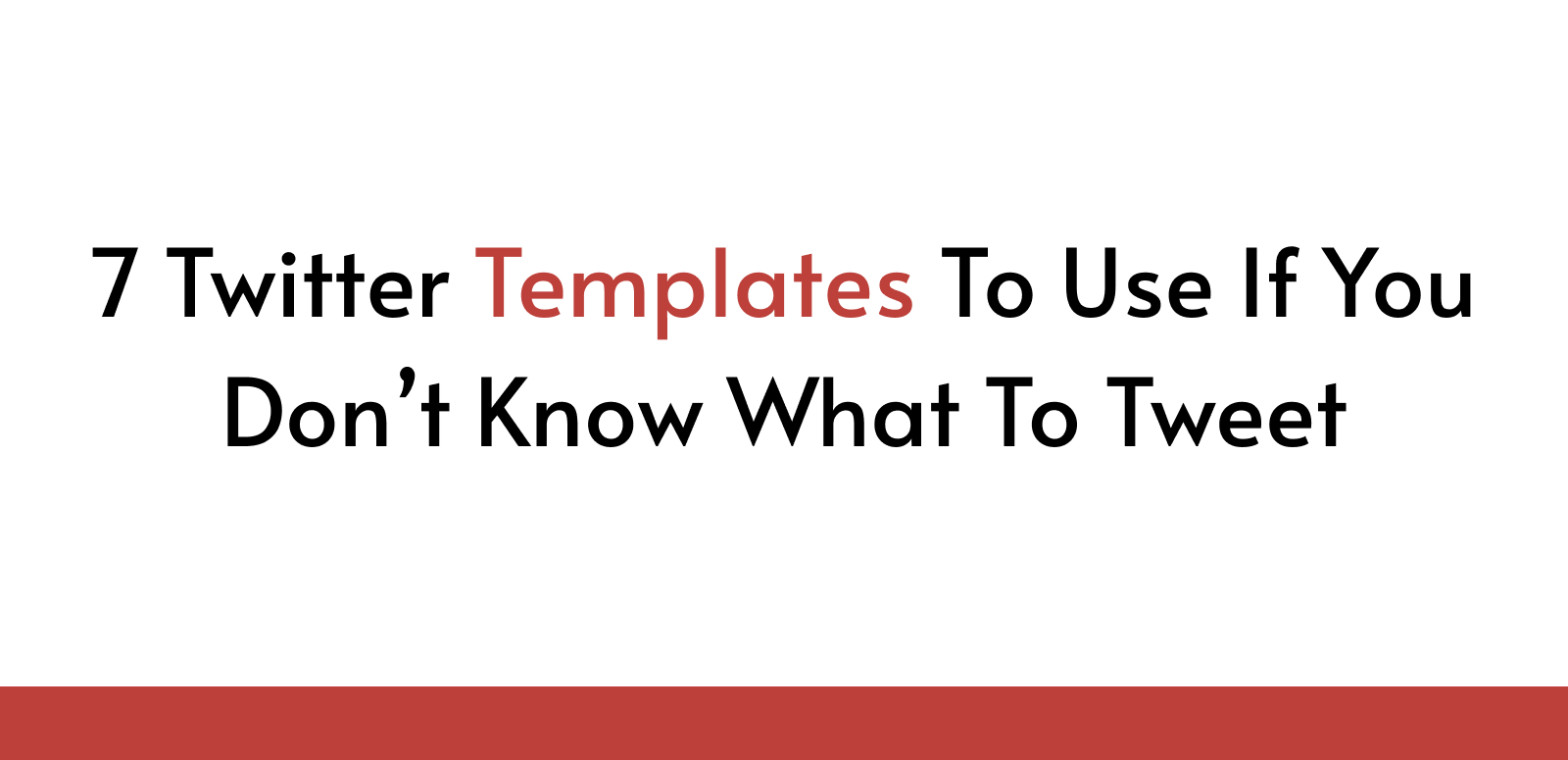You don’t have to be a content-creating genius to build a must-follow Twitter account – you just need a great Twitter template.
It’s awesome to share original ideas if you’ve got them, but you can also create value simply by sharing other people’s ideas.
The following seven Twitter templates will show you how to do that.
Even if you do nothing other than use these templates to post one tweet a day each week, your audience will grow (and love you for it).
MONDAY: The Backstory Tweet Template
Pick a well-known person, company, or product in your niche.
Go to their Wikipedia page or do a Google search to find an interview they’ve done or article about their origin story.
Choose an interesting bit of their backstory you assume your audience won’t know.
Share that in a tweet and, if possible, connect it to broader lesson relevant to your audience.
Example:
I found this bit about Marc Maron on the Wikipedia page for his podcast and turned it into this tweet:
TUESDAY: The Book Excerpt Tweet Template
Pick a book about a topic relevant to your audience.
Do a Google search for “[Book Title] summary.”
You’ll see a bunch of blog posts or videos summarizing the key points of the book.
Pick an interesting, actionable, or valuable concept from the summary and explain it in a tweet .
Credit the book author for the concept in your tweet and tag them if they use Twitter.
You can also do this with books you’ve read of course, but the summary method allows you to pull from any book without having had to read it first.
Example:
I found this concept from April Dunford’s book Obviously Awesome in this summary blog post.
WEDNESDAY: The Statistic Tweet Template
Pick a topic relevant to your audience’s interests.
Do a Google search for “[Topic] statistics.”
You’ll see a bunch of roundups of stats related to that topic. Pick one or two good stats and feature them in a tweet.
Credit the source in the tweet or a reply to the original tweet.
Example:
I found these stats in this blog post about newsletter statistics.
THURSDAY: The Quote Tweet Template
Do a Google search to find quotes related to a word or phrase of interest to your audience.
Or, just search for that topic on Brainyquote.
Pick a quote your audience will find interesting.
Post it as a tweet along with a related question to attract engagement and turn the quote into a conversation starter.
Example:
I searched for quotes with the word “creators” in them, chose one from Lauryn Hill, and added a question inviting people to talk about their own work.
FRIDAY: The Recommended Follow Tweet Template
Find a journalist, author, podcaster, or business leader who tweets about a topic of interest to your audience and recommend people follow them.
To find relevant people you can do a Google News search for a relevant topic, find an article about it, and look up the Twitter accounts of the person who wrote it or people quoted in it.
Example:
A Google News search for the term “creator economy” led me to this article written by Rebecca Jennings who I then featured in this tweet.
SATURDAY: The Popular Retweet Template
Use Twitter’s advanced search to find a popular tweet someone posted on a topic relevant to your audience.
You can search for a tweet from any time frame, but if you search for one from a year or two ago it’s less likely to have been seen recently by your audience.
Filter your search to look for tweets with a certain number of retweets (20+ is a decent place to start). That will show you tweets people are most likely to share.
Once you find a good tweet, retweet it with a comment that summarizes or adds value to the original tweet.
Example:
I searched Twitter for tweets with the phrase “Twitter growth” that were posted in 2021 and had at least 20 retweets. That led me to the tweet I shared below.
SUNDAY: The Podcast Excerpt Tweet Template
Find a podcast episode about a topic relevant to your audience.
Look at the summary of the episode on the podcast’s website and find a moment of it that seems unique, interesting, or valuable.
Use the timestamp to go listen to that segment or read that part of the conversation if the show has a transcript.
Turn the concept discussed into a tweet, credit/tag the person who said it, and the podcast it comes from.
Example:
Browsing the Smart Passive Income podcast archives led me to this episode with Chris Do.
In the summary of the episode on the website, I saw Chris talked about his approach to creating content and read that section of the transcript to see what he said.
That became this tweet:
Want More Twitter Tips?
If you found these tweet templates helpful, here are a few other resources I created you’ll like:
- My free For The Interested newsletter features Twitter growth and monetization secrets of the world’s most successful creative entrepreneurs.
